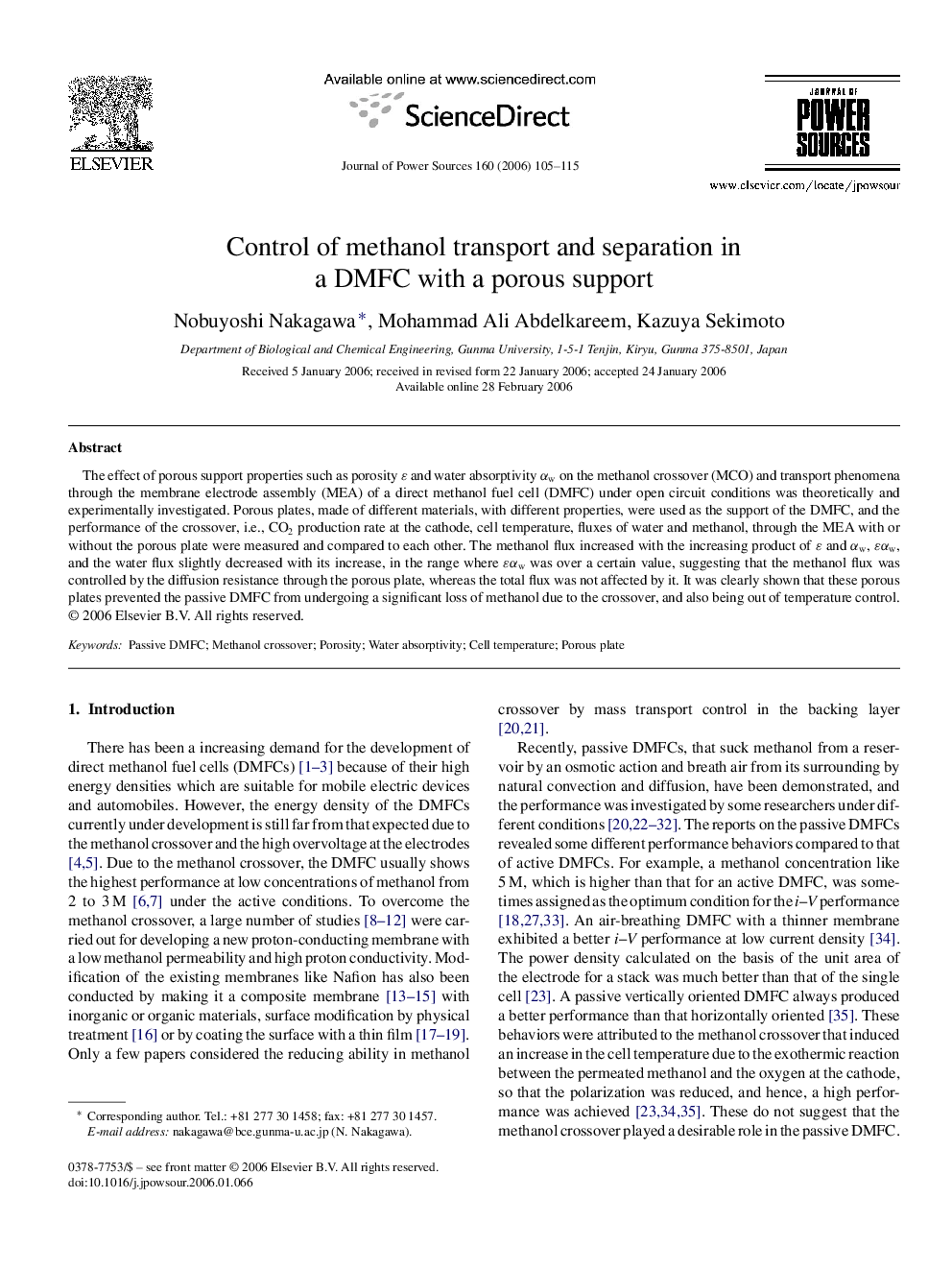| Article ID | Journal | Published Year | Pages | File Type |
|---|---|---|---|---|
| 1292232 | Journal of Power Sources | 2006 | 11 Pages |
The effect of porous support properties such as porosity ɛ and water absorptivity αwαw on the methanol crossover (MCO) and transport phenomena through the membrane electrode assembly (MEA) of a direct methanol fuel cell (DMFC) under open circuit conditions was theoretically and experimentally investigated. Porous plates, made of different materials, with different properties, were used as the support of the DMFC, and the performance of the crossover, i.e., CO2 production rate at the cathode, cell temperature, fluxes of water and methanol, through the MEA with or without the porous plate were measured and compared to each other. The methanol flux increased with the increasing product of ɛ and αwαw, εαwεαw, and the water flux slightly decreased with its increase, in the range where εαwεαw was over a certain value, suggesting that the methanol flux was controlled by the diffusion resistance through the porous plate, whereas the total flux was not affected by it. It was clearly shown that these porous plates prevented the passive DMFC from undergoing a significant loss of methanol due to the crossover, and also being out of temperature control.
